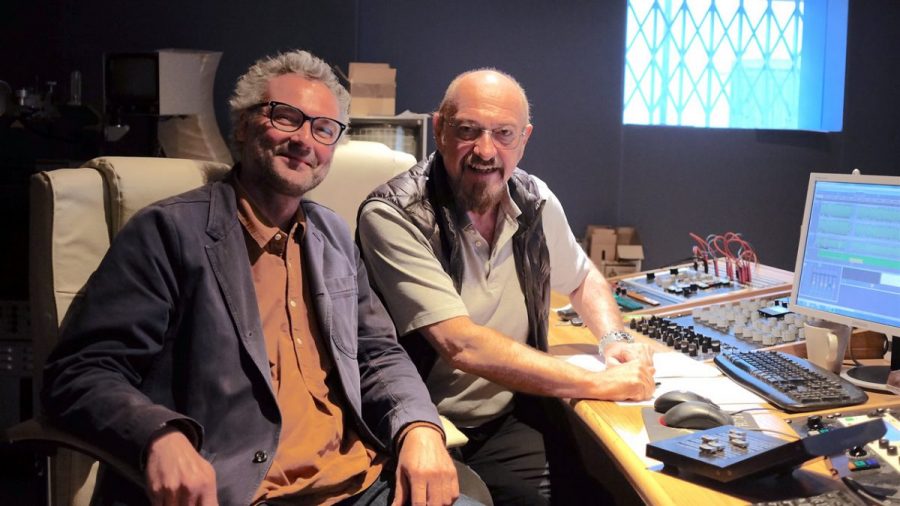Jethro Tull have been a fixture of the British music scene for over forty years. Their restless movement between rock, prog, and folk has meant a large group of fans and the ability to ride out changing fashions. The new album Jethro Tull: The String Quartets features some of Tull’s most famous material given thoughtful and inventive re-working for quartet plus Ian Anderson’s famed flute-work and (more sparingly) his vocals. The tracks have been re-worked by Anderson himself in collaboration with arranger and Tull keyboardist Mark John O’Hara. These are special performances of completely re-imagined songs and they repay listening on their own terms as well as for propelling the listener back to the original material.
Speaking to The Wee Review, Anderson revealed the driving impulse ‘was not to have a rock band plus a string quartet. I have already worked with an orchestra and a quartet. We wanted to do something authentic involving a string quartet plus “decorations” from me. This project with Mark allowed us to work with a very talented quartet and to give Mark a free hand with the arrangements.’
With the Anglo-Irish Carducci Quartet, he found a group of musicians who regularly perform pieces from both the classical canon and contemporary work. The group have been applauded for the unity and warmth of their playing.
‘I was introduced to them by a mutual friend,’ says Anderson. ‘They are a group able to play anything and they play these pieces with conviction. We were lucky to get them, and we were able to record the whole album in just three sessions.’
The album was recorded in two historic churches including the crypt of Worcester Cathedral and the tracks have the immediacy and edge of a live performance.
‘The locations were chosen for their spiritually uplifting atmosphere (I don’t enjoy recording in studios). But these were challenging circumstances for the musicians. The recordings had to go to plan. Places like that involve a lot of extra noise, from traffic and the wind. But they are special places and we got great performances.’
The newly arranged pieces cover the core Tull classics we might expect. ‘The tracks needed to include a few heavy hitters including Living in the Past and Bungle in the Jungle (which was a big hit in the US). I was conscious of what people expect of a Jethro Tull album. But it was also important in making the final choice of tracks to think about maximising the impact, and the dynamics, of the album with a range of tempos and keys. The two medleys (Sossity Waiting and Songs and Horses) had already been performed together in that form before. They were natural choices for medleys being title songs from consecutively released albums.’
Also included is We Used to Bach, a combination of We Used to Know (from 1969’s Stand Up album) and a Bach prelude. The original Tull piece was played regularly on their tour with the Eagles. ‘People have said there’s a similarity with the Eagles’ song Hotel California [released some time after the Tull recording] with which it shares a similar chord structure, as well as with work by Bach. We worked in elements of both.’ The finished article is a nice piece with some additional piano from O’Hara. But it should also inspire the listener to return to the original track We Used to Know with its wailing wah-wah solo from Martin Barre and Ian Anderson’s flamboyant flute playing, so dirty it sounds like the flute was invented for rock ‘n’ roll.
While Ian Anderson continues to tour, additional performances of the string quartets seem unlikely now given existing commitments. Anderson himself has a bucket-list of smaller projects like this which he hopes to work on alongside his touring commitments. The common thread is the music rather than the musicians.
‘I want to continue making music in the style of Jethro Tull with “Jethro Tull” being a body of repertoire not a particular group of people. For various reasons it is impossible to get the old troopers together (many of them are no longer musicians) and to find time to rehearse material. But I am still energised by touring and working on new ideas and with new musicians.’
He continues his present tour shortly with a concert in Kiev.
Jethro Tull: The String Quartets is out on BMG on 24 March
